Wed, Dec 31, 2025
National
Humanitarian crisis
It’s wrong to believe that ‘empires’ like Rome or America expanded in order to achieve security. Even though America is not a New Rome, there is a striking similarity between the two,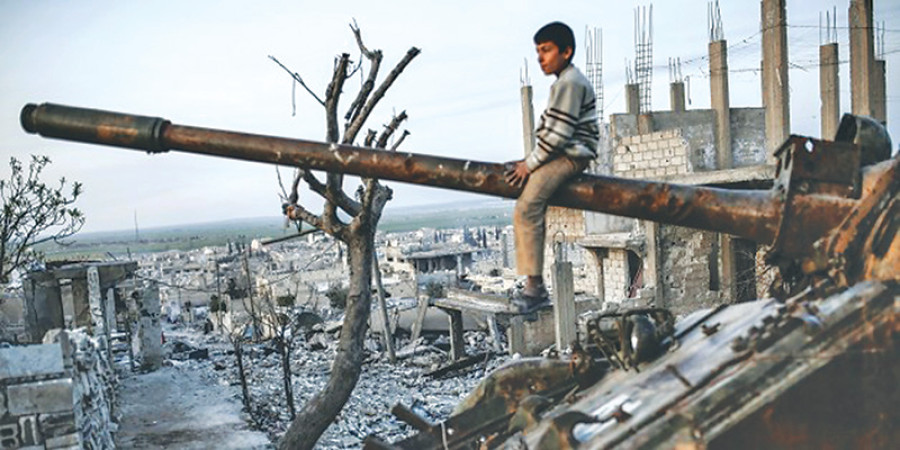
bookmark
Published at : April 1, 2018
Updated at : April 1, 2018 08:29
It’s wrong to believe that ‘empires’ like Rome or America expanded in order to achieve security. Even though America is not a New Rome, there is a striking similarity between the two, particularly in terms of the blind celebration of the empire’s shameful tributes by its home-grown illiberal class. In America, this blind celebration has had an overt influence on the various regimes in the period following 9/11. And now, the US is helmed by a notoriously-principled Donald Trump. Syria is facing the effect of this absolute state-led extremism that has beset America.
Outdated policy
Beyond a doubt, ‘multi-lateralism’ is an obsolete term today; the US has ensured as much with its remarkable follies in the past seven decades. Despite the fact that the US no longer faces any overt threats from global powers, the manner in which the US is responding to any nationalistic, self-reliance motivated initiatives from nations around the world makes it clear that the foreign and military policies of America are yet to move ahead with the times.
In recent years, the changes imposed upon emerging economies through greater global economic integration have resulted in the development of a new consciousness among citizens. Structural and social contradictions created tension because of the people’s rising aspirations and the governments’ failure to provide good governance. The Arab Spring was essentially instigated by popular dissatisfaction with the related governments, while the lack of equity in income distribution may have been another reason.
In 2011, the Arab Spring-inspired mass anti-government demonstrations began in Syria. While the demonstrations maintained a moderate form initially and did not bring about changes to the political landscape, the Syrian government instigated a crackdown on its citizens, thus giving an opportunity to armed rebel groups to mainstream their fight. This resulted in army defectors organising the Free Syrian Army and aligning with other armed groups to join the movement of opposition against the serving regime of that time.
Further complications arose as deep divisions between secular and religious fighters, and among the ethnic groups, were firmly established in the vicious politics of conflict. Now, seven years later, the civil war has resulted in the deaths of over 500,000 people. The structures of cities are missing, and the signs of civilisation are also nowhere to be found.
Unequalled tragedy
According to UN estimates, over 6.1 million Syrians have been internally displaced in recent years. Ironically, they can be called refugees on their own land as their plight is much graver than that of displaced folks in other situations. Considering this, it could be assumed that over half of Syria’s pre-war population of 22 million is in dire need of sustained humanitarian assistance. Crisis-hit people within Syria, and all those who have fled the conflict should be given support for survival.
As the idea of ‘multi-lateralism’ and the institutions that were founded on this theory are faced with acute identity and impression-related deficiencies, the situation in Syria only looks as though it will further deteriorate. Looking back into the past, one could track Syria’s fall to hyper-involvement of outside parties in the post-2015 phases of conflict. The conflict intensified as the internationalisation of the conflict added more dimensions to geo-politics and destruction.
The time is running out for the UN and other agencies to act: they should come to terms with the urgency of the situation and go back to the basics of the Geneva Convention and carry forward the spirit of humanitarian law.
Thakur is a senior journalist based in New Delhi
Most Read from National
Balendra Shah intensifies political engagements, meets Lamichhane, Ghising and others
After China, US recalls its ambassador to Nepal
Kathmandu administration denies permission for Gen Z protest, demonstrators dispersed
KP Sharma Oli maintains lead in vote count for UML chair
Students allege British College misled them on ‘overseas courses’
Editor's Picks
Nepal’s workplaces still fail new mothers
When will Nepali-origin professional footballers in Europe play for Nepal?
‘Like a dream’: Labourer from Dalit community secures full MBBS scholarship
Why Nepal is launching a system to track foreign nationals
Nepal achieves global vaccine target, seven years ahead of schedule
E-PAPER | December 31, 2025
×




 11.12°C Kathmandu
11.12°C Kathmandu
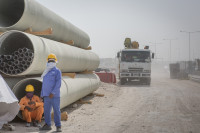
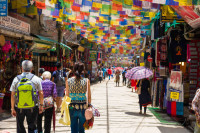

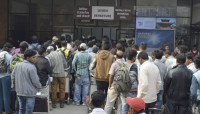
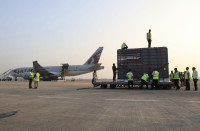


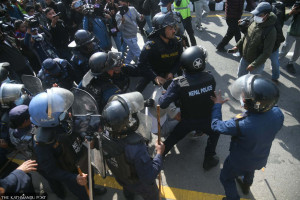
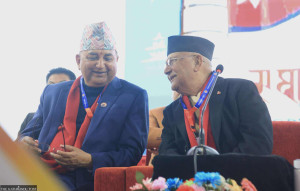



%20(1).jpg&w=300&height=200)

